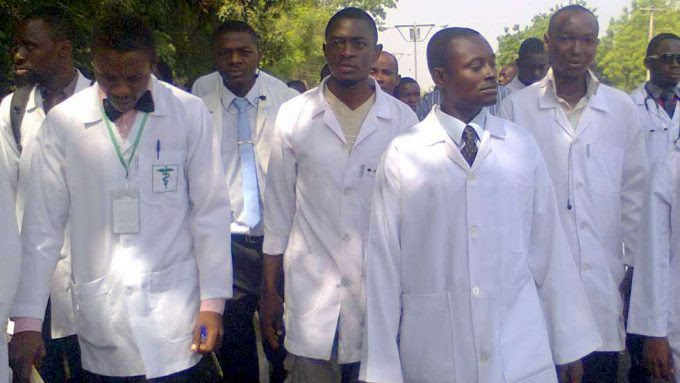The Nigerian Doctor (7): ‘My Role As Head Of A Disciplinary Committee Since Strike Began’
As the resident doctors' strike persists, Dr Jaafaru Joseph continues to play a significant role as head of a disciplinary committee meant to ensure full compliance by doctors.

By Dr. Jaafaru Joseph’s* estimation when he officially became a doctor in 2012, he would be a specialist by 2021. That has not been the case.
He is still a resident in the surgery department at Abubakar Tafawa Balewa University Teaching Hospital, Bauchi (ATBUTH), caught in the middle of a doctors’ strike many believe has become necessary. He is also head of a disciplinary committee set up to investigate cases of doctors who are in violation of the strike.
So far, there have been five doctors at his hospital who have violated the strike. They mostly had acceptable reasons, he says, even though one person did not honour the invitation extended to him.
“One of them handles cancer patients who come every three weeks for chemotherapy. We totally understand and are okay with that,” he tells HumAngle.
Another violator of the strike is an Ustaz who lamented that from his spiritual conviction, he is not comfortable sitting at home fully aware that there are people in distress at the hospital. He affirmed that he supports the strike and understands the need for it. He just has not been able to reconcile his beliefs with the need for the struggle yet.
“It was a very hard one, but all I could do was make recommendations at the end,” Dr Joseph says.
Since the strike action started, Dr Joseph wakes up by 5 a.m., tries to read until 9:10 a.m., before visiting private hospitals to review patients he has operated on or to keep an appointment. By 6 p.m. he returns home. This is a sharp contrast to his routine before the strike.
Back then, his day typically started at 7 a.m. and ended between 1 and 2 a.m. Each day began with ward rounds that involved him seeing admitted patients, altering their management, and taking them to the theatre, all depending on the peculiar needs of cases.
There are also days where he sees his out-patients. On these days, he sometimes gives chemotherapy to cancer patients, too. He has two days for ward rounds, one day for out-patients, one day for surgery, and one day for chemotherapy. Mondays are for the ward rounds; he sees patients that were admitted over the weekend and checks surgery patients.
“Then we respond to what we call consults – cases from other doctors who think their patients will benefit from our side of expertise.”
On a good day, he finishes between 3 and 4 p.m. On bad days, between 6 and 7 p.m.; then he returns home, showers, eats, and proceeds to the trauma centre/accident emergencies ward, where they have most likely stockpiled cases for him since 6 a.m. that day.
Dr Joseph explains: “These patients are usually first attended to and stabilised by casualty officers – doctors who work in the emergency department.”
“I finish seeing them at 1 or 2 a.m. I come back home and try to rest, before the following morning where work begins by 7 a.m. again.”

But everything has now changed. With the strike, his days are completely in his hands to do as he deems fit.
The doctors are asking for payment of salaries, residency training allowance, and provision of adequate facilities and staff at hospitals, he explains.
“We just felt like it wasn’t right that we continued to keep quiet for the fear of not getting paid, because already a lot of our colleagues weren’t getting paid even when they were working. We’ve been signing a memorandum of understanding for the past three years now, asking for the same thing without any visible change. So, we wanted something positive to happen, no matter what it would take.”
Support Our Journalism
There are millions of ordinary people affected by conflict in Africa whose stories are missing in the mainstream media. HumAngle is determined to tell those challenging and under-reported stories, hoping that the people impacted by these conflicts will find the safety and security they deserve.
To ensure that we continue to provide public service coverage, we have a small favour to ask you. We want you to be part of our journalistic endeavour by contributing a token to us.
Your donation will further promote a robust, free, and independent media.
Donate HereStay Closer To The Stories That Matter




